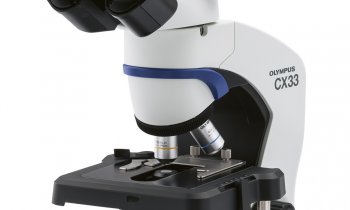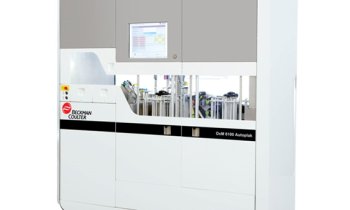Urine protein could pave the way for new prostate cancer test
Scientists from the Cancer Research UK Cambridge Research Institute and The Institute of Cancer Research (ICR) built on earlier genome-wide research to link a genetic change associated with prostate cancer risk to a significant reduction in the amount of a protein called microseminoprotein-beta (MSMB). The protein - which regulates prostate cell death - is produced by normal prostate cells – and is linked to an increased risk of developing prostate cancer.
Previously Cancer Research UK scientists and other researchers had carried out studies to cross-examine the entire human genome from thousands of men both with and without the disease. They identified a small genetic change strongly linked to an increased risk of developing prostate cancer. The genetic change is common – occurring in around 30-40 per cent of European men. It is found in the section of DNA which ‘switches on’ the production of MSMB – and is the second most abundant protein in semen after prostate specific antigen (PSA). MSMB is secreted into the urine from the semen.
Unlike levels of PSA in serum which can be used to help test for prostate cancer, MSMB levels appear to be largely unaffected by an enlarged prostate. And previous studies have suggested they are not affected by hormones – the levels of which can be altered by some treatments for prostate cancer. At the moment, there are too many uncertainties with the PSA test for doctors to use it in a national screening programme. All men have naturally different levels of PSA and levels can sometimes be raised due to medical conditions other than prostate cancer, such as an enlarged prostate. Also some men with prostate cancer will not have a raised PSA.
This latest research suggests that levels of MSMB protein in urine could form the basis for a new test to help identify men at greater risk of developing the disease. It could also potentially be used alongside PSA testing to improve detection of prostate cancer and for monitoring progression of the disease.
Lead study author, Dr Hayley Whitaker, from Cancer Research UK’s Cambridge Research Institute, said: “We looked in tissue and urine from over 350 men with and without prostate cancer to find out how much MSMB they had. We then looked to see who had the genetic change. It was really exciting to find out that the genetic change and the amount of protein were linked.”
“The protein is easy to detect because it is found in urine and would potentially be a very simple test to carry out on men to identify those most at risk of developing the disease.”
Study author Professor Rosalind Eeles,from the ICR and The Royal Marsden Hospital, added: “Our studies have shown that men with a small change in their MSMB gene are at a higher risk of prostate cancer, and so we are very excited that there may be a simple test for this genetic change. At the moment, PSA testing is the best method we have to detect prostate cancer but it has significant limitations, so there is an urgent need to find new biomarkers such as MSMB that could be used in screening and diagnosis.”
Prostate cancer is the most common cancer in men in the UK. A quarter of all new cases of cancer diagnosed in men are prostate cancers. In 2006, more than 35,000 men in the UK were diagnosed with the disease. Each year around 10,200 men in the UK die from it.
Professor David Neal, prostate cancer specialist at Cancer Research UK’s Cambridge Research Institute, said: “This is a vital piece of research that could go a long way to find a long-awaited and much-needed reliable and easy test to identify those men most at risk of developing prostate cancer. If further studies show this marker can be used in the clinic this will be a landmark discovery.”
27.10.2010











